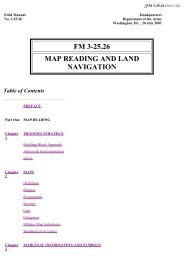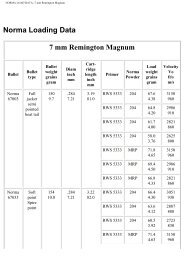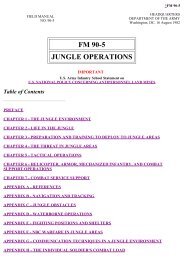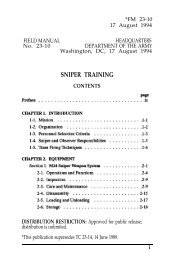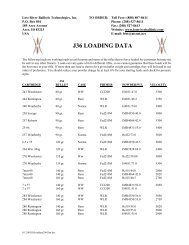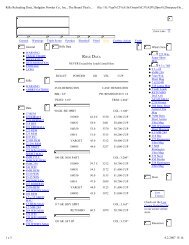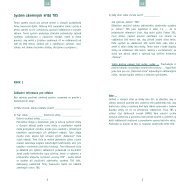FM 17-98 SCOUT PLATOON
FM 17-98 SCOUT PLATOON
FM 17-98 SCOUT PLATOON
You also want an ePaper? Increase the reach of your titles
YUMPU automatically turns print PDFs into web optimized ePapers that Google loves.
US military forces may be tasked for a variety of counterdrug activities, which are always conducted in conjunction<br />
with another government agency. These activities include destroying illicit drugs and disrupting or interdicting drug<br />
manufacturing, cultivation, processing, and smuggling operations. Counterdrug support may take the form of advisory<br />
personnel, mobile training teams, offshore training activities, and assistance in logistics, communications, and<br />
intelligence.<br />
ARMS CONTROL AND NATION ASSISTANCE<br />
The scout platoon may work with another nation’s military to conduct arms control or nation assistance activities.<br />
These types of support usually entail short-term, high-impact operations.<br />
SECTION 3 — SUPPORT OPERATIONS<br />
Domestic support operations are always conducted in support of local, state, and federal civil authorities. Overseas<br />
support operations are almost always conducted in support of and in concert with other agencies; these may be<br />
American or international organizations of either governmental or private affiliation.<br />
Support operations may be independent actions. Conversely, they may complement offensive, defensive, or stability<br />
operations. For a more detailed examination of support operations, refer to <strong>FM</strong> 100-5.<br />
TYPES OF SUPPORT OPERATIONS<br />
Support operations generally cover two broad categories: humanitarian assistance and environmental assistance.<br />
Humanitarian assistance operations are people-oriented, focusing on the well-being of supported populations; they<br />
provide critical supplies to designated groups at the request of local, state, federal, or international agencies.<br />
Environmental assistance focuses on the condition of all types of natural and man-made properties, with the goal of<br />
helping to protect and/or restore these properties as requested. Typically, environmental operations are conducted in<br />
response to such events as forest and grassland fires, hazardous material releases, floods, and earthquakes. (NOTE:<br />
Many support operations combine the actions of both humanitarian and environmental support.)<br />
PHASES OF SUPPORT OPERATIONS<br />
Although each operation is unique, support operations are generally conducted in three broad phases: response,<br />
recovery, and restoration. Army elements can expect to be most heavily committed during the response phase. They<br />
will be progressively less involved during the recovery phase, with only very limited activity, if any, during the<br />
restoration phase.<br />
Response phase<br />
In the response phase, commanders focus on the life-sustaining functions that are required by those in the disaster<br />
area. The following functions dominate these response operations:<br />
• Search and rescue.<br />
• Emergency flood control.<br />
• Hazard identification.<br />
• Food distribution.<br />
• Water production, purification, and distribution.<br />
• Temporary shelter construction and administration.<br />
• Transportation support.<br />
• Fire fighting.<br />
• Medical support.<br />
• Power generation.<br />
• Communications support.<br />
Recovery phase<br />
Recovery phase operations begin the process of returning the community infrastructure and related services to a status<br />
that meets the immediate needs of the population. Typical recovery operations include the following:



